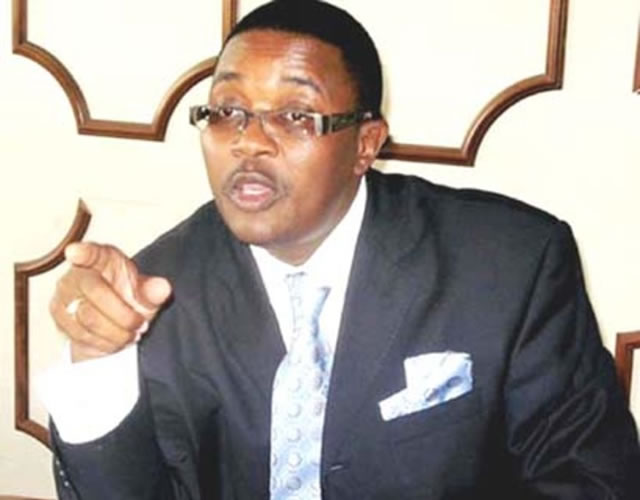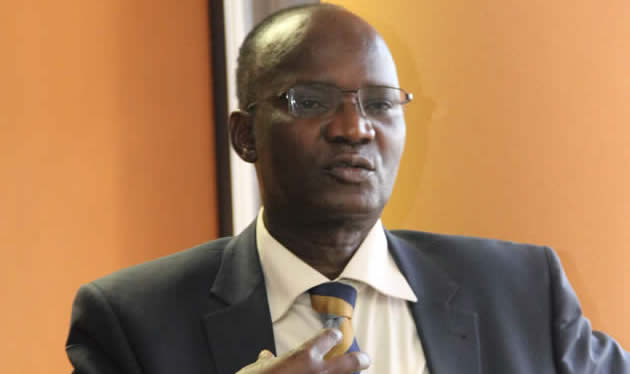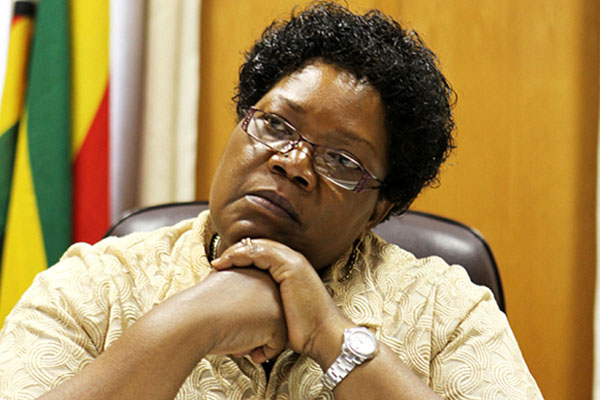Zimbabwe: Can an African ever be a racist?

“EVERY day we notice more and more that the distance which separates the White race from the Black race is an abyss which only Jesus Christ himself can fill. During our long travels among the native peoples we have become particularly aware of this sort of revulsion between these two races which strike the European as soon as he arrives in Africa. White people have an instinctive friendship for other White people and, in our isolation, this friendship becomes strengthened. In Africa, in the midst of Kaffir savagery, any White man you may meet, even though he may only have the slightest gloss of civilised society, immediately becomes a comrade and often a friend.”
Until Jesus Christ comes back . . .
“On the other hand I must confess that I have never felt the slightest affinity with a native of the country, and all the White people tell me that their feelings are the same. Any feelings of affection for the Blacks can only have their foundation in supernatural motives. I am fond of these poor Africans and would willingly shed my blood for their salvation. But quite frankly, I can only love them in Jesus Christ, for love of Him and in order to obey His word. I have noticed that, amongst the Blacks also, there is a great void and an instinctive antipathy between them and Whites. It must be noted that it is only self-interest and pure egotism which brings them close to us. Among all the Kaffirs who have been in our service for three years, we have found only two or three who have been grateful and honest. The others have always robbed us, to a greater or lesser extent.” The writer is Father Croonenberghs, a Catholic; the time is February 1881, the place the southern part of Zimbabwe then under Lobengula, the Ndebele king.
The Kaffirs in the description are Zimbabwean natives, even though the conclusion is meant to apply to all colonial encounters on the continent.
But the President is no racist . . .
Beginning of this month, I did a long instalment which, among other issues, took to task Walter Mzembi, the Tourism Minister, for his remarks which sought privileged protection of the “few” whites he said sadly remained in the country. Of course the minister hit back using his twitter. He must have known that I am not ICT-savvy, which is why his response reached me only much later, and by a friendly word of mouth! Later, he explored his thoughts more elaborately, and in a medium quite accessible and intelligible to me in my cowardly backwardness. He had a question-and-answer session with the Daily News. He touched on a number of related issues. But for me, it was his remarks on President Mugabe which left a mark. He attacked people (presumably including Nathaniel, son of Manheru) who sought to vulgarise the President’s person and philosophy by recasting him as a racist, as anti-white. Yet, the Minister maintained, the same President had proclaimed the world-acclaimed policy of national reconciliation in 1980, when Zimbabwe became independent. It sounded like a formidable rebuttal, a heroic redemption of the President’s personality and philosophy, so cheaply and wantonly harmed and besmirched by these self-serving people the minister lashed out against. Let me leave that argument for a while.
When Manheru is someone else
The whole altercation — if one it is — between the minister and myself received considerable media attention. In almost all cases, it was framed as an interpersonal conflict, with some writers taking matters to grave levels by suggesting the minister had been criticised by a civil servant who doubled up as spokesperson of the President. They were referring to George Charamba whom they presume to be me, Nathaniel Manheru. I appear unfit to be myself in their reckoning, which is why I have to be someone else. It is this very identity issue which prompts today’s reflections, but in ways that I will try to make a little larger point than the little mind and hand behind this column.
Twitter is reality
Then there was another body of reactions, quite less interested in identity issues, and more interested in the substance of the article. That body was sharply divided between readers who felt Manheru was a racist and other readers who saw nothing wrong or racist in Manheru’s assertion that Zimbabwe is a black African country, much as it may be home to other races. The argument became so heated that its red-hot fragments and shards reached the delicate ears of one of my daughters. “Daddy,” she mournfully asked, “what did you write that got some of your readers to think you are a racist?” I expressed surprise at the turn of the debate, professing I had not seen any such comments. “Because you are not on twitter Dad! That is where reality is, where real people argue matters!” It hurts when your own daughter doubts your own materiality, yet still vowing filial courtesy and loyalty. Was she now joining those ugly readers who think I cannot be myself? I limped away with a sinking ego.
Fingered techno-age man
One day you and me shall debate twitter: how reality is a construct of twits, indeed how reality, all along dauntingly studied by philosophers as larger and as most complex, has suddenly shrunk to a twit, oversimplified itself to a matter of letters and not more than five words, all of them garbled. Or could it be that our comprehension of reality has since been simplified, simplified by the techno-age man so much always in a hurry, so much led by restless little fingers on big ICT buttons, never by a vision? If Shakespeare’s blind Lear stumbled when he saw, and then after having his eyes gorged out, saw the world “feelingly”, could it be that this generation has replaced eyes and mind with fingers, releasing the mind to wander aimless, unencumbered by elaborate thoughts. Or I am one more dinosaur, one more Luddite, belatedly hacking at new, entrenched technology in the hope of stopping the world from getting by?
The story of a hammer
I was addressing the issue of how the media framed my little banter with Minister Mzembi. None of the titles or sites which took up the matter between us ever saw it as its concern, as a media issue, far more than it was a Mzembi-Manheru debate. It was a clever escape. Frame the matter as adversarially pitting two fighters, and you escape the potentially incriminating implications of the whole argument. Let us face a few facts, however, unpalatable. Mzembi is an engineer by training. He is a man of hard science, and by his own confession, a man of numbers. And like the legendary carpenter wielding a hammer, every obstacle takes the shape of a nail head. Of numbers in his case, which is why the declining numerical value of whites in this country makes an immediate worrisome impression on him. Of course until the cutter happens by, the carpenter will continue to think all matters are settled by the hammer, will continue to deny the existence of other tools, chainsaw included!
An engineer in social sciences
Minister Mzembi is an engineer who finds himself a minister in charge of national marketing. He has done well, exceedingly well I must say. But again, that makes him crave for national fame, national branding, seemingly at any cost. He wants tourists to come here in droves. And that is a message, in the main, to the white world which dominates tourism business. He has to show greater charity towards his clientele, a posture he calls street-wisdom! It is beginning to sound like a double incapacitation, but hardly a sin of fallibility on his part. The first “incapacity” is a matter of training. He may not be alive to issues of politics of race relations in their complex nuances, but he remains a qualified engineer. We dare not judge him outside his area of acquired competence, anymore than he should us, by his. The second “incapacity” is by assignation, again quite excusable. The whole issue of national branding in relation to national identity, values and sensitivities, is a very complex one, even to social science experts.
Here is an engineer thrust into that unresolved argument, and having to make decisions for a nation so given to arguments. I am most disinclined to condemn the minister, as my early August piece was misconstrued to do.







Comments